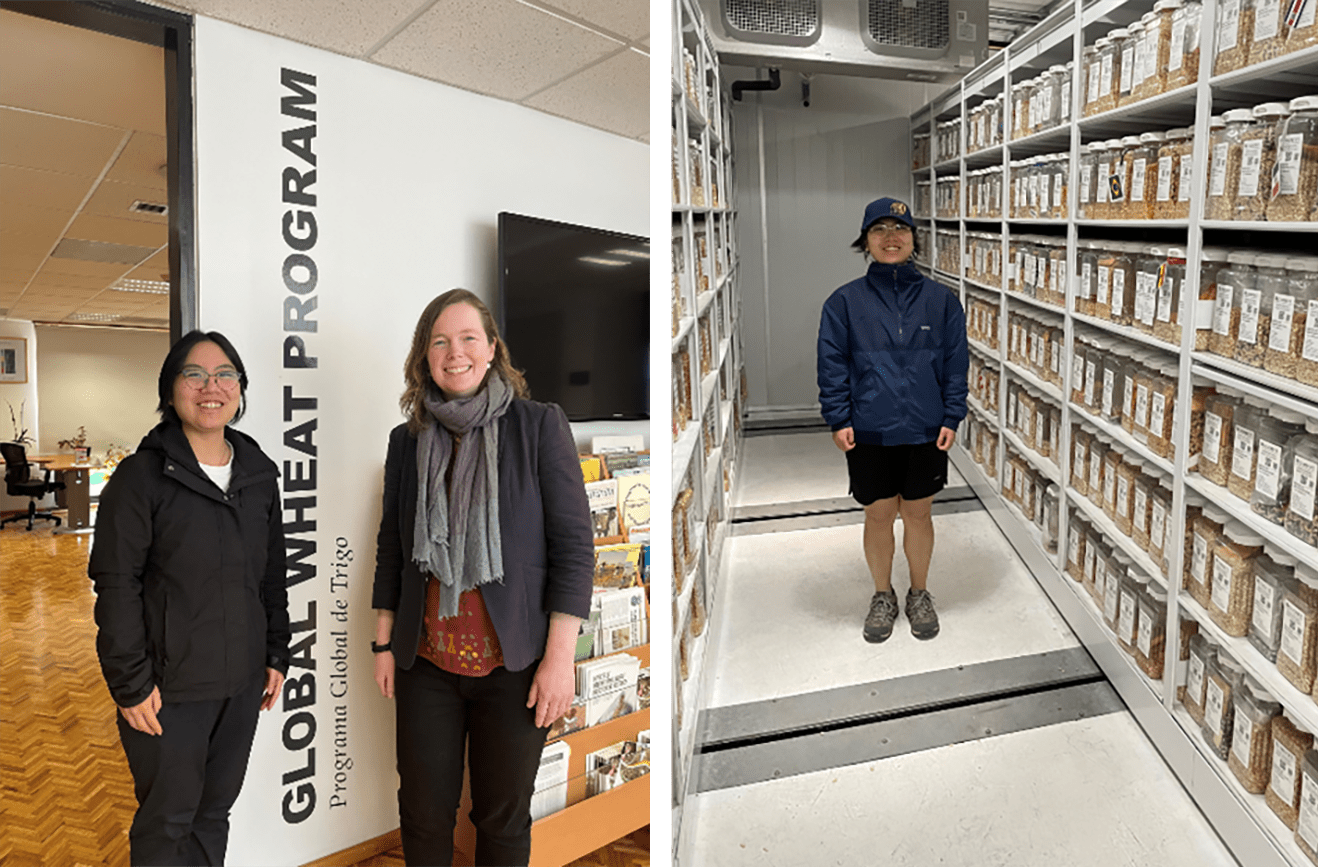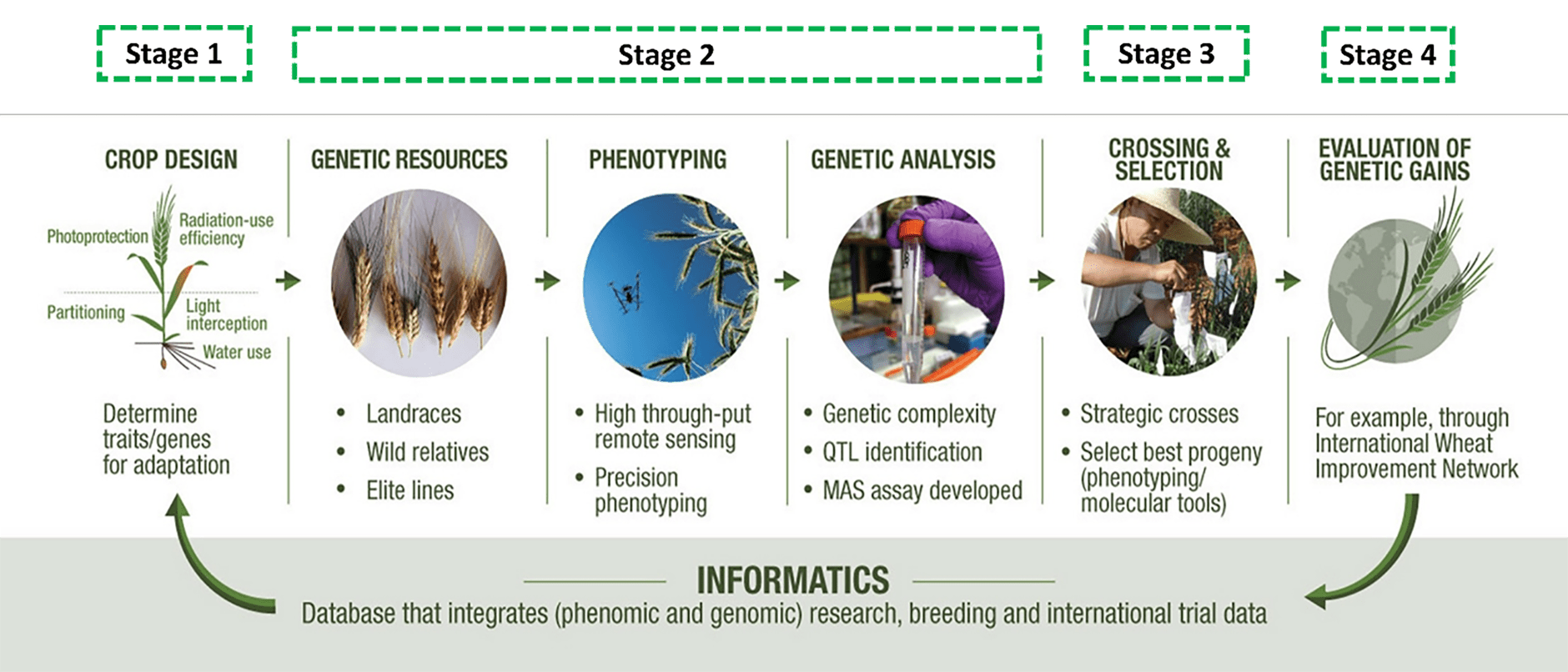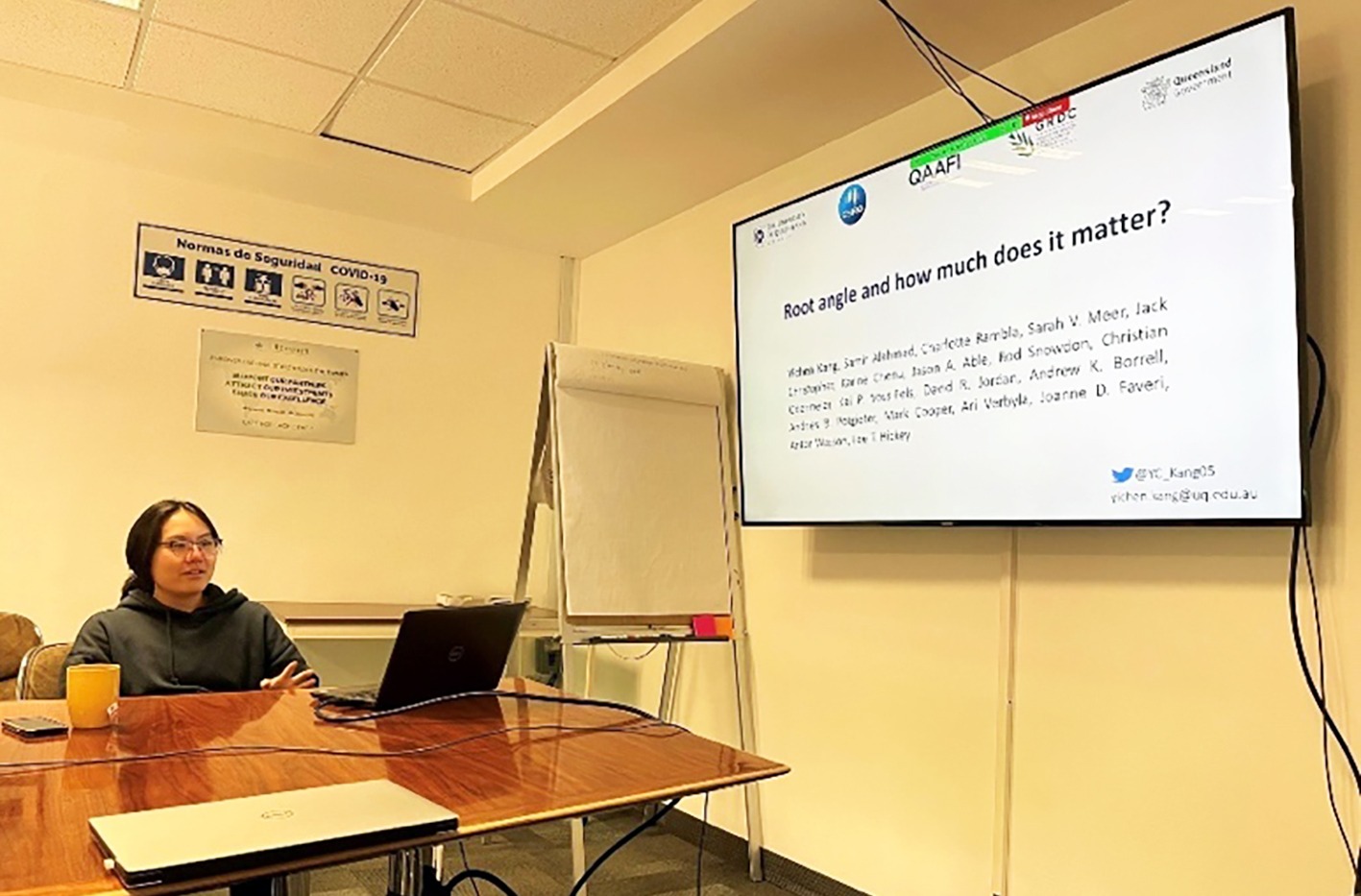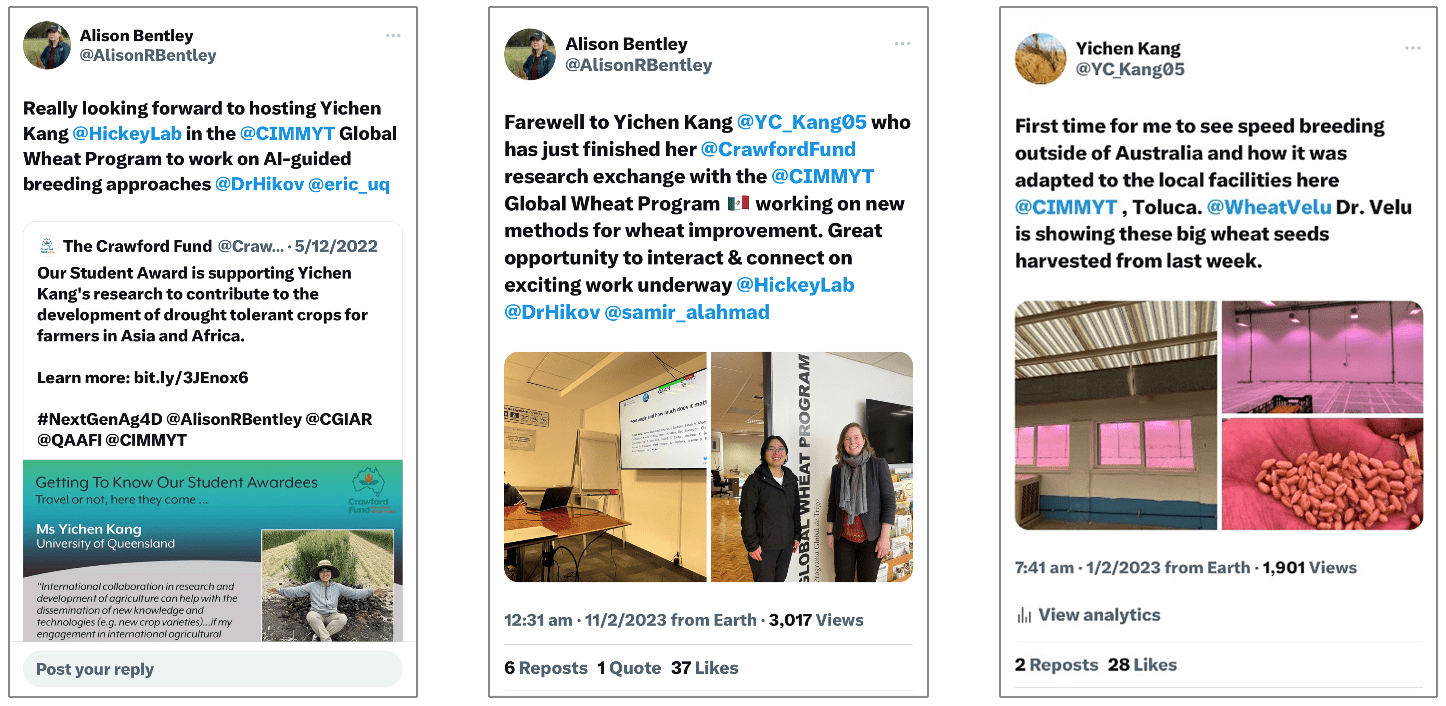

Learning from the Best in Wheat Breeding and Genetics
March 19, 2024
One way the Crawford Fund supports and encourages the next generation of Australians in study, careers and volunteering in international agricultural research is through our highly sought after Student Awards, funded by our State and Territory Committees and made possible by organisations including ACIAR, international centres, Australian and overseas universities and NGOs.
Please note applications for our 2024 Student Awards are currently open!
In 2021, we announced 10 tertiary students had won awards to gain international agricultural research experience and expertise. The global pandemic caused considerable delays for this cohort, with some opting for ‘wraparound’ strategies to ensure the work was carried out without the planned travel, while others have since successfully travelled.
We would like to share the experience of Yichen Kang, from the University of Queensland, who travelled to the International Maize and Wheat Improvement Center (CIMMYT) in Mexico and stayed for three weeks as part of her Student Award research to design roots to enhance durum wheat yield.

Wheat is one of the most important staple crops and plays a fundamental role in the global food security. To meet expected global demand, wheat production would have to grow by at least 30% before 2050 from current production level.
The deployment of new wheat varieties with enhanced resilience presents a vital solution for achieving production goals under sustainable agriculture by reducing the reliance on land and resources.
CIMMYT’s breeding network and global partnerships offer great opportunities for the exchange of knowledge and genetic resources and leveraging breeding capacity building.
“The major aim of my trip was to gain a detailed vision of the well-structured planning of wheat pre-breeding practiced at CIMMYT. Within this, another objective was to explore the potential of integrating root traits and new genomic prediction methods in exploiting CIMMYT wheat diverse panels for improving adaptation to heat, drought and favourable conditions,” said Yichen.
The last decade witnessed an unprecedented increase in the development of various technologies for speeding up the genetic improvement of major cereal crops. CIMMYT’s Global Wheat Program, then led by Australia’s Dr Alison Bentley, represents a world-class wheat breeding and germplasm enhancement program. It has capitalised on new technologies that support advances in plant breeding to ensure genetic yield gains and support delivery of improved wheat varieties.

“The CIMMYT wheat breeding team gave me an overview of their stage plan, which incorporates interdisciplinary approaches to facilitate the use of exotic materials or wild relatives for wheat improvement,” said Yichen.
“On top of that, they also provided practical insights into the execution of different pre-breeding activities. For example, I was taken to their molecular lab and walked through the procedure of Kompetetive Allele Specific PCR (KASP) assay, an efficient high-throughput genotyping technique that has been routinely applied in marker-assisted selection at CIMMYT,” she said.
“The major goal of pre-breeding is to deliver novel sources of traits/alleles/genes in acceptable agronomic backgrounds that can be readily used by breeders in their pipelines. So, an important step in crop pre-breeding is the access to germplasm resources. Through global collaboration and sharing of genetic materials, CIMMYT has established the largest wheat collection in the world for research and pre-breeding, with over 150,000 genotypes from more than 100 countries,” explained Yichen.
“This germplasm encompasses a wide range of genetic diversity, including landraces, wild relatives, and elite lines. They were gathered from different agro-ecological zones and environments, making them valuable for introducing genetic variation for climate resilience to well-established cultivars,” she said.
“This award offered me an invaluable opportunity to learn from the best in the field of plant breeding and genetics,” said Yichen.

“Although tremendous progress has been made in breeding physiological traits, there exists a knowledge gap in the genetic improvement of root systems. CIMMYT has undertaken extensive field experiments in Obregón to characterise root traits of interests in different growing environments. However, the value of those root traits in modifying root system remains to be clarified which limits their integration in wheat variety development,” she explained.
“As an important aspect of my PhD research involves linking root component trait and root distribution under field conditions, the developed robust statistical methodologies and analytic framework through this research may provide useful tools for dissecting CIMMYT’s root dataset. This presented a good opportunity to share my work in durum wheat roots, which has attracted great attention from the CIMMYT wheat team,” she said.
“The biggest benefit from this award is the establishment of my professional and personal partnerships with researchers at CIMMYT. The opportunity to communicate recent research advances achieved at UQ to the CIMMYT community, like root research and novel genomic prediction and selection approaches in plant breeding, allowed me to showcase the ability of UQ to bring plant breeding forward,” she said.
“My sincere appreciation extends to the CIMMYT staff and my supervisory team at UQ, especially Prof. Lee Hickey, for supporting me to apply this student award and coordinate this visit for me to the hub of global wheat breeding and research,” concluded Yichen.





 0
0